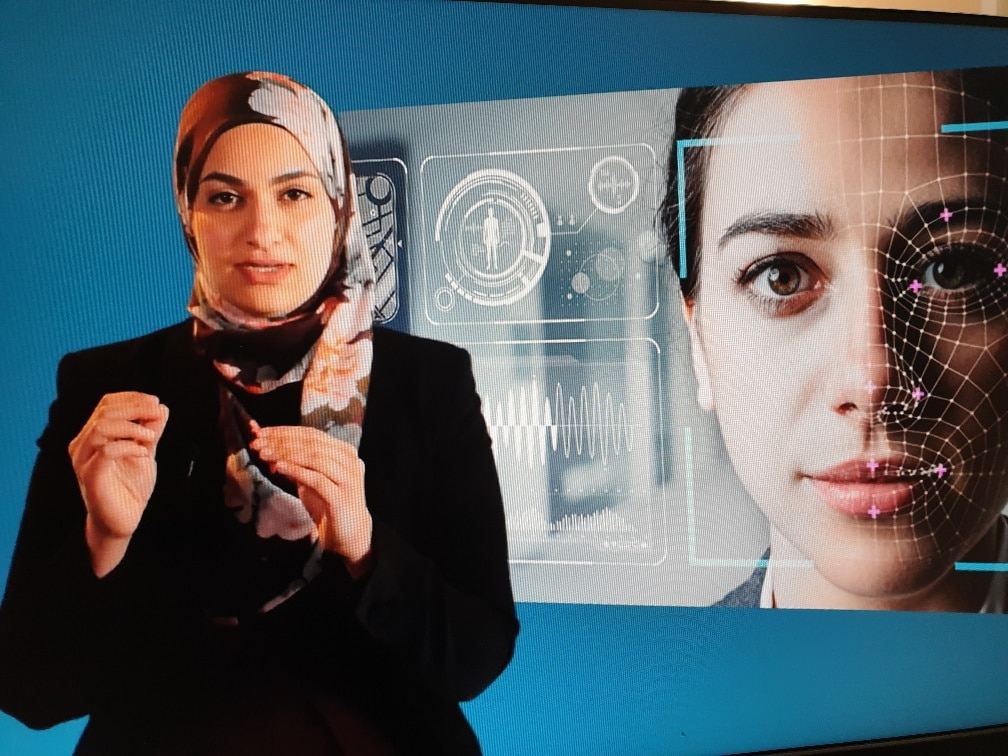Researchers from the University of Canberra had just three minutes to pitch their research projects as they competed for funding as part of the global Three Minute Thesis (3MT) contest last week.
Dua’a Ahmad was crowned winner for her remarkable research into the potential of AI to aid in diagnosing depression.
“Depression alters neural circuits in your brain, leading to behavioural and physical symptoms that are translated into our outward appearance, into our facial expressions, how often we smile, blink, or give eye contact,” Ms Ahmad explained in her pitch.
“I prepared video footage of 120 participants, each labelled by a psychologist with a severity of depression. Using an algorithm in AI, I trained a model to learn symptoms of depression,” she said.
“The model learns by breaking down video frames into smaller sections, such as areas of the mouth and eyes. It then learns characteristics within these areas, links it back to the face, and finally, its depression severity.”
By simply observing faces, the AI was able to predict severities of depression with an accuracy better than chance, about 67 per cent.
“It’s an ongoing process. I believe there’s probably another PhD after this one for my project to be continued,” said Ms Ahmad, who is currently testing on a specific data set and looking to expand. “Different backgrounds, exposures, lightings, you really have to put all these things into consideration.”
One of the brightest minds her university has to offer, Ms Ahmad’s explanation as to why she wasn’t aiming to create the next self-driving car was simple. “There’s so much potential for AI technology. For me, health is the ultimate goal.”
“There’s so much stigma associated with depression. I come from a background where no one admits they are depressed,” she said.
“The process of diagnosing the patient is lengthy and time-consuming. It requires the patient to visit the clinic multiple times and fill out questionnaires that can feel intrusive. If someone is depressed, that is the last thing they want to do.
“If I can find a method that makes it easier on people, a tool that can be used during your regular check-ups that is non-invasive and can be used remotely so the person won’t even feel that it’s happening, maybe one day it can be used on a daily basis by doctors to check patients’ wellbeing, just like getting your blood pressure checked.”
Ms Ahmad said her technology was not designed to replace psychologists and GPs, but rather assist them.
“This is not a standalone measure. It still needs that human element of the doctor confirming the diagnosis.”
She said that aided by future collaborations with others in the field that the funding can support, we could be seeing technology like this being utilised in day-to-day life in as soon as five years.
Her thesis, which has been over three years in the making, was not easily condensed into 180-seconds. However, she found great value in the process of the competition.
“On a personal note, four years of researching on your own can become very lonely. You start to forget the point of your research. You see it every day and it begins to lose its significance.
“In doing the three-minute pitch, you must focus on the why and the how to capture the essence of the project. It reminded me why I started my PHD and why I chose this topic,” she said.
“Looking at the bigger picture, it’s so important to be able to share what you’re doing with other people. Competitions like this raise awareness. I shared my pitch with friends and family that never understood what I was doing before. After I condensed my work for 3MT, that was the first time they could say ‘Oh this is awesome! I want to know how it works, tell me more’,” she smiled.
“I really believe that people want to know. That they are curious. It’s important to share outside of academia because, at the end of the day, your goal is to involve everybody.”
You can watch ‘Maybe You Can Judge a Face by Its Cover’ by Dua’a Ahmad here.



